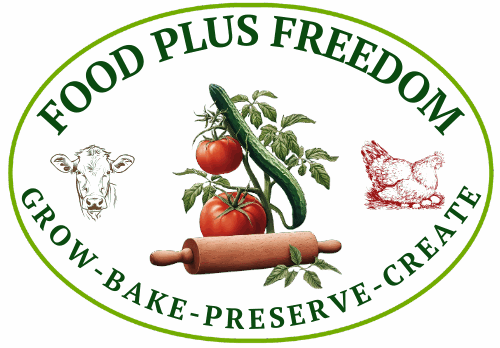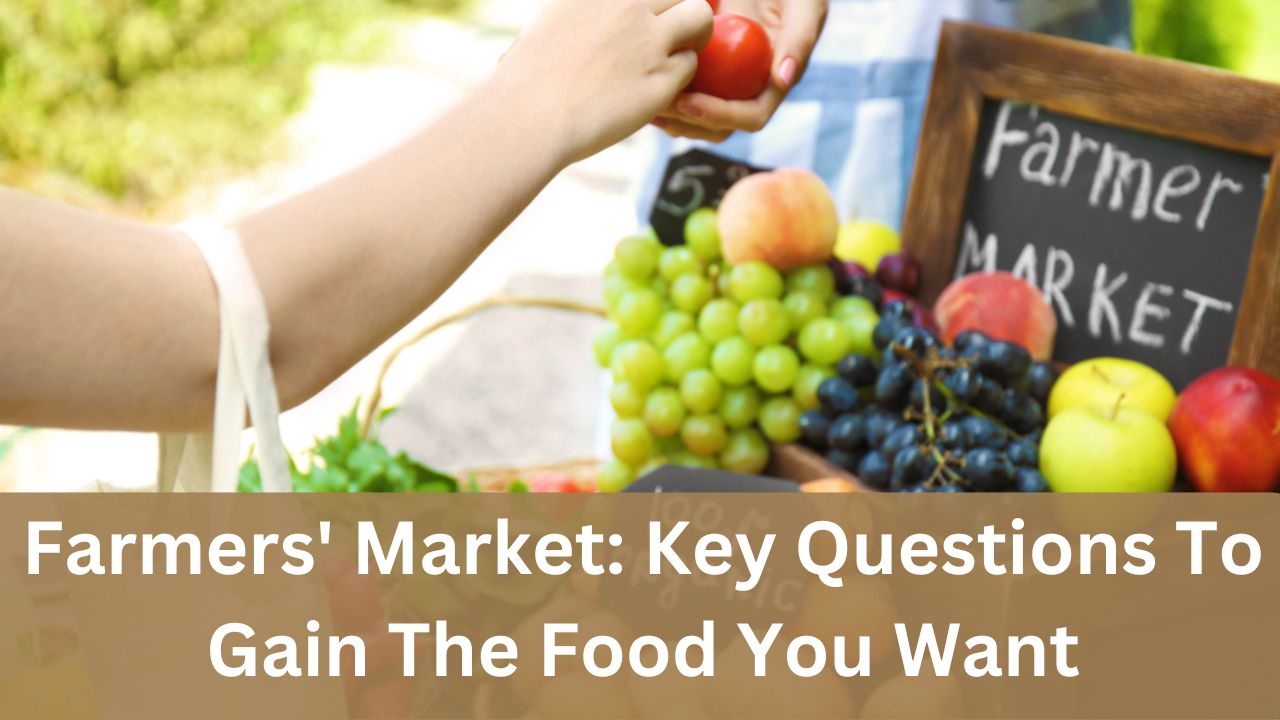Don’t be nervous about going to a farmers’ market and asking question.
When you don’t grow all your own food, you need to reach out into your community to find supplies. It’s easier than you think, but you may need to do some digging to find the right growers who sell to the public. Suppliers who hold the same values as you do for your food sources.
Knowing what you’re looking for is half the battle. This means knowing what type of food you are willing to purchase. How you want it grown. Plus, ingredients you want to avoid when purchasing already made food.
Shop with the good, better, best or forget it mentality. This means you strive for the best option but are willing to buy something in the better or good group because you need the item. Make sure you draw the line of forget it as well. This makes it easier for you to not fall into the emotional response of wanting something that doesn’t align with your food beliefs. The more you become comfortable buying what you want, the less you’ll settle for something you don’t.
My criteria for buying food is as follows:
Produce, Herbs, and Spices:
I want all my produce grown in an organic manner. When I am talking to the grower I don’t care if they are certified organic. The amount of paperwork and fees isn’t worth it for some growers to be USDA Organic Certified. Many smaller growers have a beyond organic mindset. This means some of what they are doing to raise food doesn’t align with the certification process. However, the practices are healthier than what the organic rules require.
Meat:
Beef: I want my beef to be grown organically, and 100% grass-fed. This means no grain and no excuses on why they “have to feed grain”. I like my beef hung 7 to 21 days.
Poultry (Chicken and Turkey): This includes eggs. I want free ranged on pasture eggs. Chickens normally need to be fed grain as well as pasture. I want the feed to be organic. Not just non-gmo but organic.
Pork: Raised with organically grown, no chemically treated feed. It’s nice if the pigs can also run on pasture. I don’t want my pork locked up being raised in its own slop.
Lamb and Goat: I want grass-fed just like beef. However, I’ve never found someone who raises lamb and goat as I would. If they must feed grain it needs to be organic.
Grains and grain products: I buy my whole grains like wheat, spelt, corn, rye, etc. to grind for bread products and treats. I started making my own because I couldn’t find anyone in the area that made bread as I wanted it created. All whole grains I purchase are organic.
Questions to ask the producers of your food.
Remember, you are asking questions not attacking vendors. So choose your words kindly and smile. If at any time they give you an answer that doesn’t fit into your food requirements, be polite. Genuinely thank them and move onto the next booth or farm stand. Don’t argue, or give them more information because you think you need to educate them. Also, make sure you’re mindful of other customers and the farmers’ time. Even if you don’t like how they grow, others might not care.
If others are in the booth or at the farm stand, I stay back for a few moments, listening to others talking to the farmer or about the products. Many people are asking questions when they first start buying from farmers. Plus, you can also overhear people who are regulars talking with the farmer. This can give you insight as well.
I ask different questions to growers that are new to me. I don’t always ask all these questions and I never ask in the same order. Many times I don’t need to ask any questions because once I start inquiring I get all the information I need. By getting to know the growers you’re buying from you can go back again and again buying with confidence. Plus, you’ll create a trusted source for your food.
Food Producers (Meat and Produce)
- If it’s not obvious I ask where their farm is located. This usually opens up an easy conversation.
- Do you grow everything in your booth or stand? Some farmers buy from each other to have more of a variety. This doesn’t mean the other farmer grows as they do.
You will gain much information by opening up the conversation with, do you grow everything? Those that do will answer with pride.
Those that grow in an organic manner and purchase from others fall into two camps. One, they know everything about the other farm or can direct you to them. Or two, they become very vague, meaning they have no clue. I am leery of those that buy from other farmers and don’t know anything about how the food was grown. The vendor could purchase their products from produce auctions.
Unless you discover the vendor is outright lying to you, you can still purchase items they personally grow with confidence. Now how might you find out you’re being lied to? If the vendor tells you everything is organic or they only buy organic from other vendors but you find a PLU code on an item that starts with a four, they are lying. Most homegrown places do not invest in PLU codes for their items. Plus PLU codes that begin with a four, means they are conventionally grown.
PLU codes are the codes you see in the grocery store for bulk items and produce. - Is your product grown without chemicals and started with non-gmo seeds?
- Meat: Beef, is it grass fed and finished? Are your fields and hay sprayed with chemicals? How long do you hang your beef?
- Chicken and pork. Are they raised on non-sprayed pasture? Do you give them organically grown feed?
- For Bacon and other processed meats, I ask about nitrates. I do not want any nitrates in my food. There are natural preservatives available for bacon, sausage, jerky, etc., but they are not deemed nitrates. Nitrates in the ingredients is a preservative that is colored red, which means red dye is in your food. Nitrates and nitrites are a controlled substance that butchers have to account for every speck to the government due to its chemical substance.
They may say it only has a little nitrates, and they would be accurate. It only takes a very small amount of nitrates to preserve the meat. However, nitrates and nitrites can lead to tons of health issues as well.
Herbs, teas, and other food places, including vendors that sell tortillas, chocolate, salsa, jelly, etc.
- For places selling herbs or teas I ask if they grow their stuff, most don’t. If not I ask where and how they purchase it and if it is organic.
- Processed food like jams, jellies, salsa, tinctures, juices, snacks, etc. I ask them if they grow their own to create their product. If not (most don’t) where do they source their ingredients or how they source their ingredients. I read the ingredients to make sure I am avoiding citric acid and other ingredients I don’t want in my food.
- I also look for sunflower oil and other seed oil used in the creation of the food. I avoid seed oils.
When looking to purchase processed foods, knowing what you don’t want in your food is very important. Make sure you read the ingredients.
Try different size farmers’ markets and more populated areas.
While visiting family in a city, I found the following amazing foods available at their farmers’ market. A vendor that made bone broth from meat very close to how I would raise it. A vendor that made tortillas with non-chemical fresh wheat, lard, and amazing spice. Plus, no additives like the stores. A vendor that made organic salsa. A spice vendor that bought spices from local farmers then dried and made their mixes. Plus, other items I’d never seen before.
Larger populated areas and larger farmers’ markets have more choices and niche markets available.
Vendors will not grow all their own, but you will discover different vendors partnering up with growers. They are creating a network that you don’t have to, but still gain the food you want. Plus, how you want it created, raised, or made.
Regardless if you live near a small or large farmer’s market or farm stand, go and see what they offer. Ask questions, be polite, and create a community of like-minded people for your food sources.
Even if you grow your own food, find others that grow as you would. It will open you up to meeting more like-minded people, plus give you the opportunity to find new varieties and products.
Enjoy!

